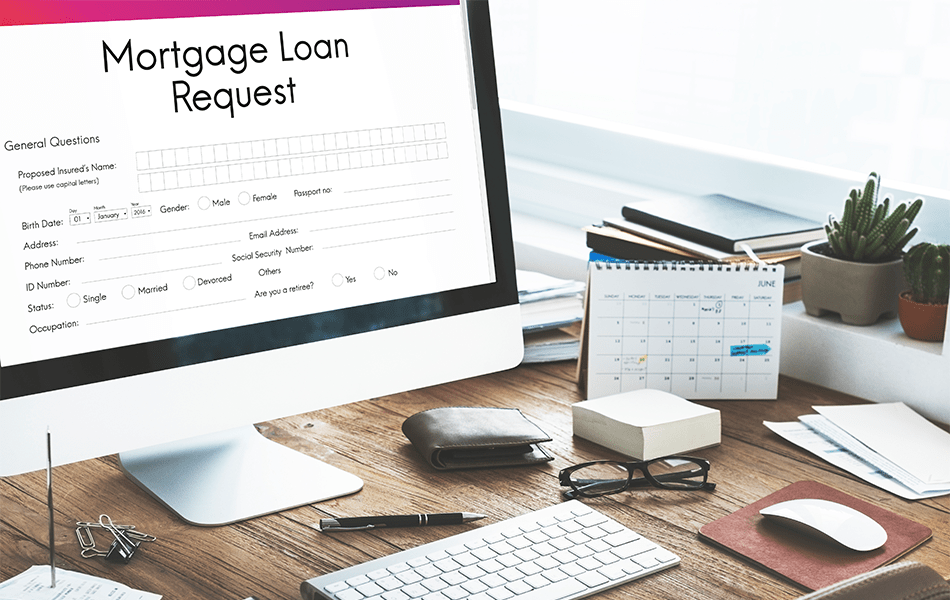If you’re planning to buy a condo in the Philippines, it’s important to understand how bank loans work and the requirements involved in securing one. A housing loan in the Philippines is a popular option for many buyers. However, it’s not as simple as just filling out an application form and waiting for the loan approval. There are certain criteria that you need to meet and required documents that you need to submit to increase your chances of getting approved.
Before going for a loan application for your condominium purchase, it’s important to do your research and understand the process. In this article, we’ll go through the basics of condo bank financing in the Philippines, the requirements involved, and some tips to help you increase your chances of getting approved. Whether you’re a first-time condo buyer or have been through the process before, understanding how loan terms work can make the journey to owning your dream residential property a smoother one.
Home Loan Terms
Before we discuss anything, let’s make sure that you understand the different home loan-related terms that we’ll be using:
Home loan/ Housing loan
A type of loan that is used to purchase a property, such as a house or a condominium unit. The borrower will typically make an initial payment on the property and borrow the remaining amount from a lender, such as a bank or a financial institution. The borrower will then make a monthly payment, including both the principal amount borrowed and the interest charged by the lender, over a period of several years. The length of the loan, also known as the loan term, can vary depending on the lender and the borrower’s agreement. In most cases, the property itself serves as collateral for the loan amount. This means that if the borrower is unable to make the payments, the lender has the right to take possession of the property and sell it in order to recover their losses. Home loans can come in various types and with different interests, payment terms, and requirements, depending on the lender and the borrower’s financial situation.
Interest rates
An interest rate is a percentage charged by a lender to a borrower for the use of borrowed money. In other words, it is the cost of borrowing money. Interest rates are typically calculated as a percentage of the total amount borrowed and are usually charged over a period of time. Interest rates can be fixed or variable. A fixed interest rate remains the same for the entire duration of the loan, while a variable interest rate may change based on market conditions or other factors. Interest rates can also vary depending on the type of loan and the borrower’s creditworthiness. For example, borrowers with good credit scores may be offered lower rates compared to those with poor credit scores.
Monthly amortization
Amortization is the process of paying off a loan amount by making a regular monthly payment over time. Each payment includes a portion that goes towards paying off the amount borrowed (called the principal) and a portion that goes towards paying the cost of borrowing the money (called the interest). In the beginning, most of the payment goes towards paying the interest, and less goes towards the principal. As you make more payments, the amount of interest you owe decreases, so more of each payment goes towards paying off the principal. Over time, the amount you owe gets smaller until you have fully paid off the loan term. The amortization schedule shows you exactly how much you need to pay each month and how much of each payment goes toward the principal and interest. It helps you to plan and budget for your loan amount payments.
What is condo bank financing in the Philippines?
Bank financing, also known as a housing loan, for a condominium means that you’re borrowing money from a bank to pay for the unit. The bank will assess your credit history, capacity to pay, and the value of the condo unit before deciding how much to lend you. This can be done by looking into your income documents. Are you locally employed? Or are you self-employed with a legitimate and profitable business? Maybe you’re an overseas Filipino worker? The bank will take factors like these into consideration, alongside other basic documents, as they want to make sure that you will be capable enough to pay them back eventually.
A financial institution like Union Bank or Security Bank offers a loan package for up to 80% of the unit’s appraised value, which means that you’ll need to have at least 20% of the total cost as a down payment. The bank will then charge you alongside an interest rate, which you will need to pay back over a period of time. This loan maturity is usually between 10 to 25 years, depending on the bank’s loan term that was agreed upon.
Before you can qualify for a housing loan amount in the Philippines, you’ll need to meet certain requirements. These include having a good credit score, a stable source of income, and a down payment for the unit. The payment can range from 10% to 30% of the total purchase price, depending on the lender and your financial situation. Once you’ve submitted all the required documents and are approved for the loan amount, you’ll need to make monthly payments to the bank, which will include both the principal amount borrowed and the interest charged.
What makes a home loan a good option?
Securing a housing loan amount for a condominium unit is popular in the Philippines because it allows buyers to spread the cost of purchasing a property over a longer period of time. With a housing loan, buyers can make down payments and pay for the remaining balance through monthly installments with interest over a period of several years. This makes it more affordable for many Filipinos who may not have the financial means to pay for a property in full upfront.
Home loan application requirements in the Philippines
The requirements for a home loan in the Philippines may vary depending on the lender and the type of loan you’re applying for. However, here are some common documents and information that you may need to provide alongside the application form:
Proof of identity
You’ll need to provide at least two government-issued valid ID, such as a passport, driver’s license, or voter’s ID. Make sure these have their own photocopies and three specimen signatures. If you are married, make sure to provide a copy of your marriage contract.
Proof of income documents
This includes documents such as a bank statement, company ID, recent pay slips, a certificate of employment, and a tax declaration with your latest Income Tax Return (ITR). Being locally employed can help increase your chances of getting a loan approved.
If you are self-employed, make sure to provide proof of business registration. This can either come from the Department of Trade and Industry (DTI) or the Securities and Exchange Commission (SEC) registration. You’ll also be required to present recent bank statements, audited financial statements, and ITRs. How recent the documents should be would depend on the bank but safe to say it should be around the last 3-6 months.
If you are an OFW, prepare a proof of remittance and consularized Consularized Certificate of Employment with Income (COEI). Banks will have to know your combined monthly income in order to see if you are able to pay for the housing loan amount in the future.
Property documents
You’ll need to provide documents related to the property you want to purchase, such as a contract to sell, certificate of title, reservation agreement, and an authorization letter.
Down payment
You may be required to make down payments for a reservation agreement on the property before the lender will approve your loan amount.
Personal information
In order to be qualified for a bank loan, you need to be around the ages of 21-65. The time in which you apply can also affect your chances of getting loan approval. All loan amounts have to be paid before you turn 65 years old. If you were to go for a loan application good for 30 years at the age of 50, there’s a high possibility that the bank won’t let you.
Do note that these can change depending on where you apply for a home loan. Make sure to visit your preferred bank’s website to know more details about the requirements.
How to apply for a home loan in the Philippines
Now that you have everything you need, it’s time to finally apply for your own home loan package. Here’s what you need to do:
- Determine your budgetThe first step is to determine how much you can afford for a condominium unit. Take into account your annual income, expenses, and any other financial obligations you have. as the principal borrower, it’s your responsibility to make sure that you can pay back the money yourself. You can also have a fellow co-borrower if you wish to do so.
- Choose a bankResearch and compare different bank offers to find the one that offers the best terms and rates for your financial situation.
- Prepare your documentsYou’ll need to gather and prepare several income documents, including proof of income, certificate of employment, tax returns, bank statements, and identification documents.
- Get pre-approvedSome banks offer pre-approval, which can give you a better idea of how much you can borrow and what your interest rate will be. This helps you narrow down which condo is attainable for your financial capabilities.
- Find a condo unitOnce you’re pre-approved, start looking for a condo and find a selling price that fits your budget and needs. This gives you a chance to look for the dream house space you’ve always wanted.
- Submit your applicationWhen you find a condo you want to purchase, completely fill out the application form and submit your loan documents to your chosen bank along with any other requirements.
- Wait for approvalThe lender will review your application and may request additional information or documentation before making a decision.
- Close the loanIf your loan amount is approved, you’ll need to sign a loan agreement and pay any closing costs. The lender will then transfer the funds to the seller, and you can finally move into your new condo unit.
Invest in condos the right way
As if buying a condominium property is already hard enough, you also have to worry about securing a home loan amount to help soften the blow on your wallet. There are just so many things to consider such as gathering all the required loan documents, finding the right bank to deal in house financing with, and deciding on which property to buy.
If you’re still confused, it’s always a good idea to consult. Here at Asterra, we aim to help you find the perfect living spaces at affordable prices. Visit our website to find our official contact details so you can get in touch with one of our experts.
Written by Renzo Guevara





